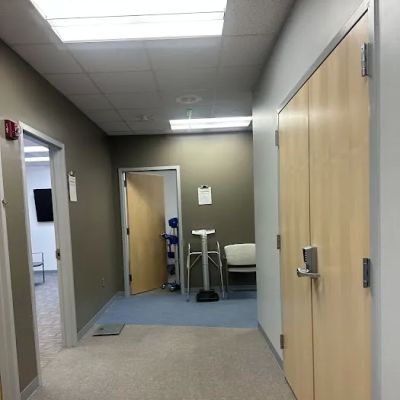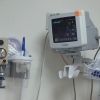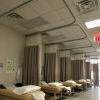- 1 - Why Regular Screenings Are Crucial for Heart Health
- 2 - Common Tests Used to Assess Heart Disease Risk
- 3 - Real-Life Impact of Early Detection
- 4 - Who Should Get Regular Screenings
- 5 - How Lifestyle Choices Work with Screenings
- 6 - Taking Action for a Healthier Future
1 - Why Regular Screenings Are Crucial for Heart Health
Heart disease remains the leading cause of death in the United States, claiming hundreds of thousands of lives each year. Despite advancements in medicine, many people still underestimate the silent and progressive nature of cardiovascular disease. Regular screenings for heart disease risk are crucial because they allow doctors to catch early warning signs before symptoms even appear. Early identification of risk factors like high cholesterol, elevated blood pressure, and abnormal heart rhythms gives individuals the chance to make lifestyle changes or start treatments that can prevent severe complications such as heart attacks or strokes.
Skipping screenings can often mean missing subtle red flags that build up over time. For example, someone may feel perfectly healthy but still have dangerous plaque buildup in their arteries. A routine check could reveal the issue and prevent a life-threatening event down the road. Prioritizing regular checkups is one of the simplest and most effective ways to safeguard your heart health.

2 - Common Tests Used to Assess Heart Disease Risk
There are several standard tests and evaluations doctors use to measure your risk for heart disease. Each plays an important role in painting a complete picture of your cardiovascular health:
- Blood Pressure Measurement: High blood pressure is a leading contributor to heart disease. A quick check during a routine visit can alert you to issues that may require monitoring or treatment.
- Cholesterol Panel: This test measures LDL (“bad” cholesterol), HDL (“good” cholesterol), and triglycerides. Unbalanced cholesterol levels can lead to plaque buildup in arteries.
- Blood Glucose Testing: Since diabetes is closely linked to heart disease, checking fasting glucose or hemoglobin A1c levels helps assess your risk.
- Electrocardiogram (EKG/ECG): This test records your heart’s electrical activity and can detect irregular rhythms or early signs of damage.
- Stress Tests or Imaging: For individuals with higher risk factors, exercise stress tests or imaging scans may be recommended to evaluate how well the heart functions under strain.
These screenings aren’t just for people already showing symptoms—they’re designed to catch hidden risks early on. By combining test results with your family history and lifestyle habits, healthcare providers can develop personalized recommendations to keep your heart strong.
Atlanta Heart Specialists
atlanta heart specialists
4375 Johns Creek Pkwy #350, Suwanee, GA 30024, USA

3 - Real-Life Impact of Early Detection
Stories from real patients demonstrate how regular screenings can be lifesaving. For instance, a 45-year-old marathon runner in good shape went in for a routine physical, expecting a clean bill of health. Instead, his cholesterol panel revealed dangerously high LDL levels, and further testing showed early arterial narrowing. By starting medication and making dietary adjustments, he avoided what could have been a sudden and fatal heart attack. These types of outcomes highlight how screenings catch hidden risks before they escalate into emergencies.
Another example is a woman in her early 50s who struggled with occasional fatigue but dismissed it as aging. A simple EKG during her annual exam detected an irregular heartbeat, leading to treatment that reduced her stroke risk significantly. Such cases emphasize that screenings are not just formalities—they can literally save lives.
4 - Who Should Get Regular Screenings
While every adult should consider regular screenings, certain groups face a higher risk and benefit greatly from consistent monitoring:
- Individuals over age 40, especially men and postmenopausal women.
- People with a family history of heart disease, heart attacks, or strokes.
- Those with conditions such as high blood pressure, high cholesterol, or diabetes.
- Smokers or individuals with a history of heavy alcohol use.
- People who lead sedentary lifestyles or struggle with obesity.
Doctors may adjust the frequency of screenings depending on your risk level. For example, someone with no risk factors may only need cholesterol checks every 4–6 years, while individuals with multiple risks might require annual monitoring. Talking with your healthcare provider ensures you’re on the right schedule for your needs.
5 - How Lifestyle Choices Work with Screenings
Screenings alone won’t prevent heart disease, but when paired with healthy habits, they become a powerful tool. Adopting a heart-friendly lifestyle means focusing on diet, exercise, stress management, and avoiding harmful habits like smoking. A balanced diet rich in fruits, vegetables, lean proteins, and whole grains supports healthy blood pressure and cholesterol levels. Regular physical activity strengthens the heart muscle and improves circulation.
Screenings provide measurable data to track the effectiveness of your lifestyle changes. For example, if your cholesterol numbers improve after switching to a plant-based diet, you can see tangible proof that your efforts are paying off. Likewise, if screenings show continued risk, your doctor can adjust your care plan accordingly. This feedback loop makes screenings a vital part of a long-term heart health strategy.
6 - Taking Action for a Healthier Future
Prioritizing regular screenings for heart disease risk is a decision that can have lifelong benefits. They provide clarity about your current health, reveal hidden dangers, and allow for timely interventions that can prevent catastrophic outcomes. Ignoring them, on the other hand, can leave you vulnerable to sudden and severe complications. Every test you take is an investment in your future well-being.
If you’ve been putting off scheduling a screening, now is the time to act. Speak with your healthcare provider about which tests are appropriate for your age and risk level. For trusted information, tools, and services designed to support heart health, HeartCare Hub offers reliable resources to help you make informed choices. Remember: your heart works tirelessly for you—return the favor by giving it the care and attention it deserves.






















Deborah Heart and Lung Center
deborah heart and lung center
200 Trenton Rd, Browns Mills, NJ 08015, USA